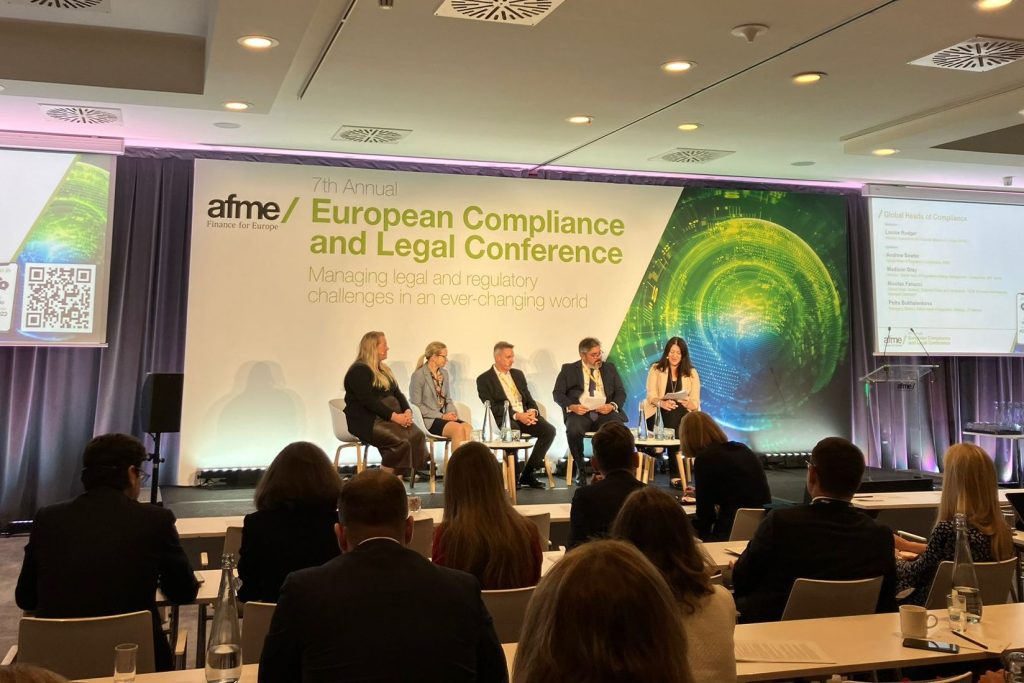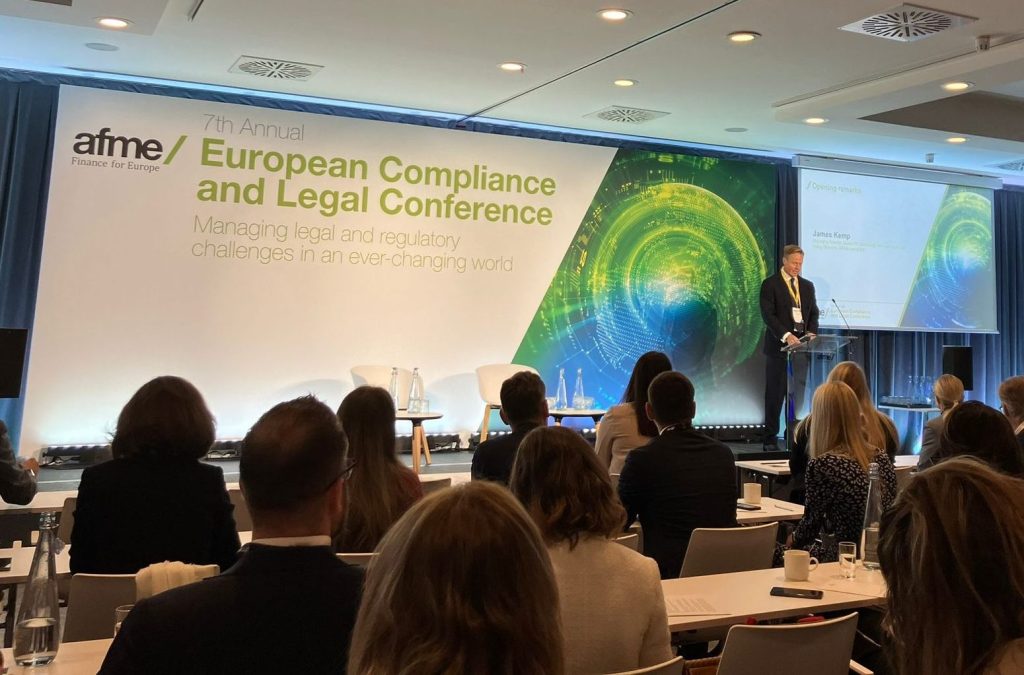Over 50 heads of compliance and industry experts addressed the audience at AFME’s 7th annual European conference in Brussels this week.
Gauging the mood in the room, a poll found monitoring AI in the trading room to be top issue of concern for compliance officers in the next two to three years, followed by the challenges of meeting the EU/UK divergence.
Geopolitical shifts
Martin Merlin, Director, European Commission, was the first to the podium, and focussed on AML reforms. “2019 was a year of reckoning for the EU. We adopted the fifth AML directive as an answer to the Panama Papers and terrorist events that shook our continent. The urgency that triggered these reforms has not faded away,” he said, adding that the Covid-19 pandemic has left the scars of criminal infiltration.
Global heads of compliance representing HSBC, Standard Chartered, J.P. Morgan, and BNY Mellon gathered on the first panel to discuss regulatory priorities, upskilling in compliance functions, and innovation.

Without mentioning the Ukraine War explicitly, multiple references were made to the major recent geopolitical shifts. Predicting more financial risk in the coming five years, Nicolas Fanucci, Global Head of Financial Crime and Compliance, Standard Chartered, said: “Collaboration drives effectiveness. The natural bedfellow to compliance has traditionally been risk. The world is becoming increasingly balkanized and this is translating into financial services”.
Madison Gray, Director, BNY Mellon, said Chief Compliance Officers should be reporting through risk functions. She added firms should be looking at whether HR and finance should have a firmer grasp of compliance, while Petra Bukhalenkova J.P. Morgan said compliance and operational risk were very much working together.

Unanswered questions on upskilling
Speakers clearly believe the remit of compliance and risk functions need to be assessed due to increasing expectation of front line ownership from regulators.
“The EU has embarked on unprecedented level of public spending to boost employment,” Martin Merlin said.
It was agreed that upskilling was essential for compliance to be effective. “Our risk assessments as a function have been far too retrospect,” Fanucci said. “A few years ago I wasn’t talking about crypto, TPRM and a multi-polarized world. As these risks have emerged, we’ve come under pressure. Is there a skills gap and is compliance the repository of this?”
A key question was how to integrate technological skills into a role and function that typically involves deep expertise rather than a broad understanding. “Attracting talent, managing by upskilling, and retention, as well as allowing people to develop by gaining broader rather than deep experience,” was key, Gray said.
Onboarding compliance people with coding and programming skills could be an option. Answering the question of what skills compliance functions most need to build out, half of respondents said technology specialisms like AI and digital assets. This was viewed as far more important than new regulatory expertise or data literacy. Meanwhile, keeping up with the pace of change in the industry was seen as the biggest challenge in upskilling, followed by difficulty in attracting new talent.
The panel concluded that there was a need to respond to pressures by developing better processes for taking on emerging macro risks. This could be frameworks, monitoring, testing, and bringing multiple functions together. Combining financial and non-financial risk metrics and using a data-led approach to know where to focus resources were also mentioned as options.












